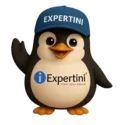- Expertini Resume Scoring: Our Semantic Matching Algorithm evaluates your CV/Résumé before you apply for this job role: PhD Position F/M LLM Powered Continuous Evolution of Scientific Computing Software.

Urgent! PhD Position F/M LLM-Powered Continuous Evolution of Scientific Computing Software Job Opening In Rennes – Now Hiring INRIA
PhD Position F/M LLM Powered Continuous Evolution of Scientific Computing Software
Job description
Contexte et atouts du poste
Environment
The candidate will be involved in the DiverSE team, joint to the CNRS (IRISA) and Inria, and in the Laboratory in High Performance Computing for Calculation and Simulation (LiHPC) of CEA DAM, affiliated to the University of Paris-Saclay.
It will be supervised by Benoit Combemale ( ) and Djamel Khelladi ( from Inria, and Dorian Leroy from CEA DAM.
The candidate can be either at Inria in Rennes or CEA DAM in Bruyère le chatel, and visit regularly the other site.
The PhD will be funded by the NumPeX program (
Mission confiée
The mission of this thesis revolves mainly around conducting research of excellence, which the DiverSE team strives to achieve.
A state-of-the-art review will be one of the first activities in order to better prepare the ground for the implementation of solutions and prototypes, as well as for conducting empirical experiments for a rigorous evaluation of contributions.
Principales activités
Context
Marc Andreessen argued about “Why Software Is Eating The World” in the WSJ [1].
This is also true for scientific computing that levarages on computing capabilities to understand and solve complex problems, in science (chemistry, physics, maths, biology…), industry (health, space, aeronautics, etc.) and public authorities.
In scientific computing, there is a significant disconnect between the lifetime of physics simulation codes (~20 years), HPC programming paradigms (~10 years), and supercomputers (<5 years).
This puts a heavy burden on the developers of these applications, as they are primarily physicists and numerical analysts, but nevertheless have to address software engineering and high performance computing (HPC) concerns when coding, and keep pace with advances in those fields [2].
To achieve proper separation of concerns, the use of domain-specific languages (DSLs) tailored to the needs of the domain experts [3] is a promising perspective to allow physicists and numerical analysts to address concerns specific to their domains, while the language developers address the software engineering and HPC concerns.
However, to integrate and experiment with cutting-edge advances in software engineering and HPC, it is not feasible to start from scratch or manually rewrite the existing code due to the extensive lifetime and size of physics simulation codes.
Worst, as both software and hardware capabilites continously evolve, one must continously update and maintain (i.e., co-evolve) its code as a consequence.
Unfortunately, this task is still manual and is a burden for developers.
Today, AI advancement showed promising results and plethora of LLMs are re-shaping developers daily activity [4].
This is no different in scientific computing and opens up several perspectives and opportunities for automation.
Objectives
The objective of this PhD thesis is to provide building blocks enabling the rapid evaluation and adoption of cutting-edge advances in software engineering and HPC, in the context of scientific computing software, and simulation codes in particular, by leveraging LLMs.
The overall objectives are, beyond a survey of the state of the art [5, 6] on this topic and in adjacent contexts (i.e., non-scientific software), to explore the feasibility of powering continuous code evolution with LLMs. Among the many existing challenges, we aim to:
This will also help in the scalability challenge of evolving large complex code.
Prerequisites
software engineering)
LLMs)
References
[1] Marc Andreessen,
[2] Leroy, D., Sallou, J., Bourcier, J., & Combemale, B.
.
When scientific software meets software engineering.
Computer, 54, 60-71.
[3] Fowler, M.
.
Domain-specific languages.
Pearson Education.
[4] Ishaani, M., Omidvar-Tehrani, B., & Anubhai, A.
.
Evaluating human-AI partnership for LLM-based code migration.
[5] Busch, D., Bainczyk, A., & Steffen, B.
(2023, October).
Towards LLM-Based System Migration in Language-Driven Engineering.
In International Conference on Engineering of Computer-Based Systems (pp.
191-200).
Cham: Springer Nature Switzerland.
[6] Almeida, A., Xavier, L., & Valente, M.
T.
.
Automatic Library Migration Using Large Language Models: First Results.
arXiv preprint arXiv:2408.16151.
How to apply
Send your CV, motivation letter, and grades of your bachelor and master with the diplomas.
Avantages
Rémunération
monthly gross salary 2300 euros
Your Complete Job Search Toolkit
✨ Smart • Intelligent • Private • Secure
Productivity & Wellbeing (Private)
Organize and maintain wellnessSalary and Tax Calculator
Financial planning toolsInterview Preparation (Private)
Master your interviewsInterview Practice
Practice for Any Interview Q&A (AI Enabled)
Interview Prediction
Predict interview Q&A (AI Supported)
Interview Practice Timer
Mock interview trainer (AI Supported)
Behavioral Mastery
Ace behavioral interviews (AI Powered)
Question Journal
Record interview questions (Confidential)
Interview Ace
Master your interviews
Q&A Logs
Track your answers (Confidential)
Application Tools (Private)
Optimize your applicationsApplication Planner
Schedule your applications (Confidential)
Cover Letter Tool
Create perfect cover letters (AI Supported)
Resume Score
Analyze your resume (NLP Supported)
ATS Score
ATS compatibility check (AI Supported)
Application Analyzer
Optimize your applications (AI Supported)
Career Planning & Analysis (Private)
Plan your career pathCV & Resume Builder Templates (Private)
Professional resume templatesProfessional
O*NET Supported
Executive
O*NET Supported
Modern
O*NET Supported
Creative
O*NET Supported
Minimalist
O*NET Supported
Europass
European Union Recommended
Student
Institution Recommended
Graduate
Institution Recommended
Academic
Researcher Recommended
Developer/IT
IT Savvy Recommended
Skilled Worker
Trades Recommended
Monochrome
O*NET Supported
Art
Artist Recommended
Harvard
Researchers Recommended
Community Research
Join and contributeProfile & Core Tools
Build your professional presenceRegister
Create your account
Login
Access your account
Profile Builder
Create your professional profile
View Profile
Preview your profile
Bookmarked Jobs
Your saved opportunities
Your Reviews
Reviews you've given
Following
Companies you follow
Find Companies
Discover employers
Standalone CV Builder
O*NET Supported
Other Utilities (Private)
Additional helpful toolsResources & FAQ
Get help and guidanceGeneral FAQ
Common questions answered
Job Seekers FAQ
Help for job seekers
Job Matching
How matching works
Personalized Matching
Customized job suggestions
Quick Apply
Fast application process
Alert Frequency
Manage alert settings
Job Alerts Guide
Understanding alerts
Resume Matching
How we match resumes
Ethical Branding
Professional branding guide
Candidate Visibility
Increase your visibility
Verified Badge
Get verified status
AI ATS Technology
Learn about our AI
ATS Ranking
How ATS ranks you
Semantic Matching
AI-powered matching
Join thousands of professionals who've advanced their careers with our platform
Please Note: This is NOT a job application form.
-
Real-time PhD Position Jobs Trends in Rennes, France (Graphical Representation)
Explore profound insights with Expertini's real-time, in-depth analysis, showcased through the graph below. This graph displays the job market trends for PhD Position in Rennes, France using a bar chart to represent the number of jobs available and a trend line to illustrate the trend over time. Specifically, the graph shows 154 jobs in France and 6 jobs in Rennes. This comprehensive analysis highlights market share and opportunities for professionals in PhD Position roles. These dynamic trends provide a better understanding of the job market landscape in these regions.
-
Are You Looking for PhD Position F/M LLM Powered Continuous Evolution of Scientific Computing Software Job?
Great news! INRIA is currently hiring and seeking a PhD Position F/M LLM Powered Continuous Evolution of Scientific Computing Software to join their team. Feel free to download the job details.
Wait no longer! Are you also interested in exploring similar jobs? Search now: PhD Position F/M LLM Powered Continuous Evolution of Scientific Computing Software Jobs Rennes.
-
The Work Culture
An organization's rules and standards set how people should be treated in the office and how different situations should be handled. The work culture at INRIA adheres to the cultural norms as outlined by Expertini.
The fundamental ethical values are:- 1. Independence
- 2. Loyalty
- 3. Impartiality
- 4. Integrity
- 5. Accountability
- 6. Respect for human rights
- 7. Obeying France laws and regulations
-
What Is the Average Salary Range for PhD Position F/M LLM Powered Continuous Evolution of Scientific Computing Software Positions?
The average salary range for a PhD Position F/M LLM Powered Continuous Evolution of Scientific Computing Software Jobs France varies, but the pay scale is rated "Standard" in Rennes. Salary levels may vary depending on your industry, experience, and skills. It's essential to research and negotiate effectively. We advise reading the full job specification before proceeding with the application to understand the salary package.
-
What Are the Key Qualifications for PhD Position F/M LLM Powered Continuous Evolution of Scientific Computing Software?
Key qualifications for PhD Position F/M LLM Powered Continuous Evolution of Scientific Computing Software typically include Computer Occupations and a list of qualifications and expertise as mentioned in the job specification. Be sure to check the specific job listing for detailed requirements and qualifications.
-
How Can I Improve My Chances of Getting Hired for PhD Position F/M LLM Powered Continuous Evolution of Scientific Computing Software?
To improve your chances of getting hired for PhD Position F/M LLM Powered Continuous Evolution of Scientific Computing Software, consider enhancing your skills. Check your CV/Résumé Score with our free Resume Scoring Tool. We have an in-built Resume Scoring tool that gives you the matching score for each job based on your CV/Résumé once it is uploaded. This can help you align your CV/Résumé according to the job requirements and enhance your skills if needed.
-
Interview Tips for PhD Position F/M LLM Powered Continuous Evolution of Scientific Computing Software Job Success

Here are some tips to help you prepare for and ace your job interview:
Before the Interview:
- Research: Learn about the INRIA's mission, values, products, and the specific job requirements and get further information about Other Openings
- Practice: Prepare answers to common interview questions and rehearse using the STAR method (Situation, Task, Action, Result) to showcase your skills and experiences.
- Dress Professionally: Choose attire appropriate for the company culture.
- Prepare Questions: Show your interest by having thoughtful questions for the interviewer.
- Plan Your Commute: Allow ample time to arrive on time and avoid feeling rushed.
- Be Punctual: Arrive on time to demonstrate professionalism and respect.
- Make a Great First Impression: Greet the interviewer with a handshake, smile, and eye contact.
- Confidence and Enthusiasm: Project a positive attitude and show your genuine interest in the opportunity.
- Answer Thoughtfully: Listen carefully, take a moment to formulate clear and concise responses. Highlight relevant skills and experiences using the STAR method.
- Ask Prepared Questions: Demonstrate curiosity and engagement with the role and company.
- Follow Up: Send a thank-you email to the interviewer within 24 hours.
- Be Yourself: Let your personality shine through while maintaining professionalism.
- Be Honest: Don't exaggerate your skills or experience.
- Be Positive: Focus on your strengths and accomplishments.
- Body Language: Maintain good posture, avoid fidgeting, and make eye contact.
- Turn Off Phone: Avoid distractions during the interview.
To prepare for your PhD Position F/M LLM Powered Continuous Evolution of Scientific Computing Software interview at INRIA, research the company, understand the job requirements, and practice common interview questions.
Highlight your leadership skills, achievements, and strategic thinking abilities. Be prepared to discuss your experience with HR, including your approach to meeting targets as a team player. Additionally, review the INRIA's products or services and be prepared to discuss how you can contribute to their success.
By following these tips, you can increase your chances of making a positive impression and landing the job!
-
How to Set Up Job Alerts for PhD Position F/M LLM Powered Continuous Evolution of Scientific Computing Software Positions
Setting up job alerts for PhD Position F/M LLM Powered Continuous Evolution of Scientific Computing Software is easy with France Jobs Expertini. Simply visit our job alerts page here, enter your preferred job title and location, and choose how often you want to receive notifications. You'll get the latest job openings sent directly to your email for FREE!
Unlock Your PhD Position Potential: Insight & Career Growth Guide

